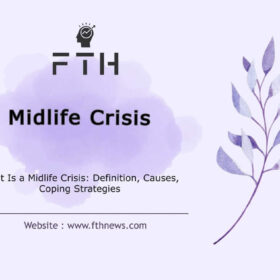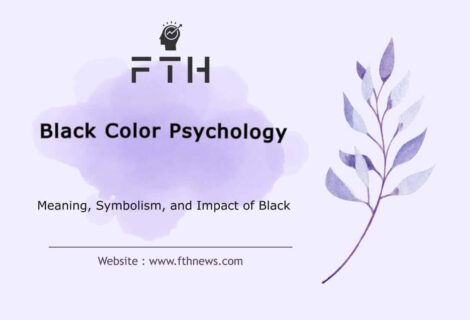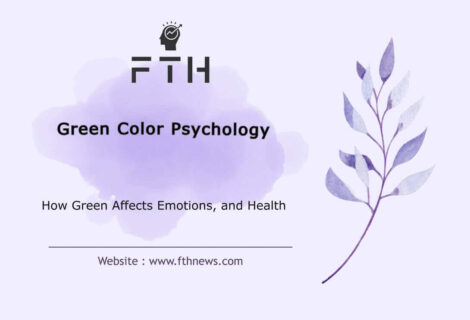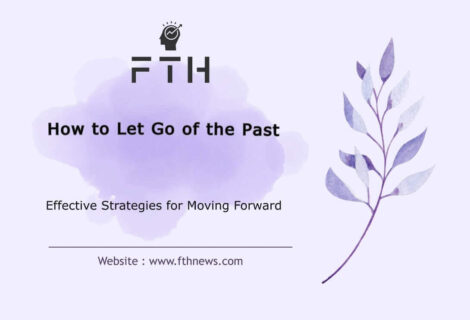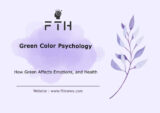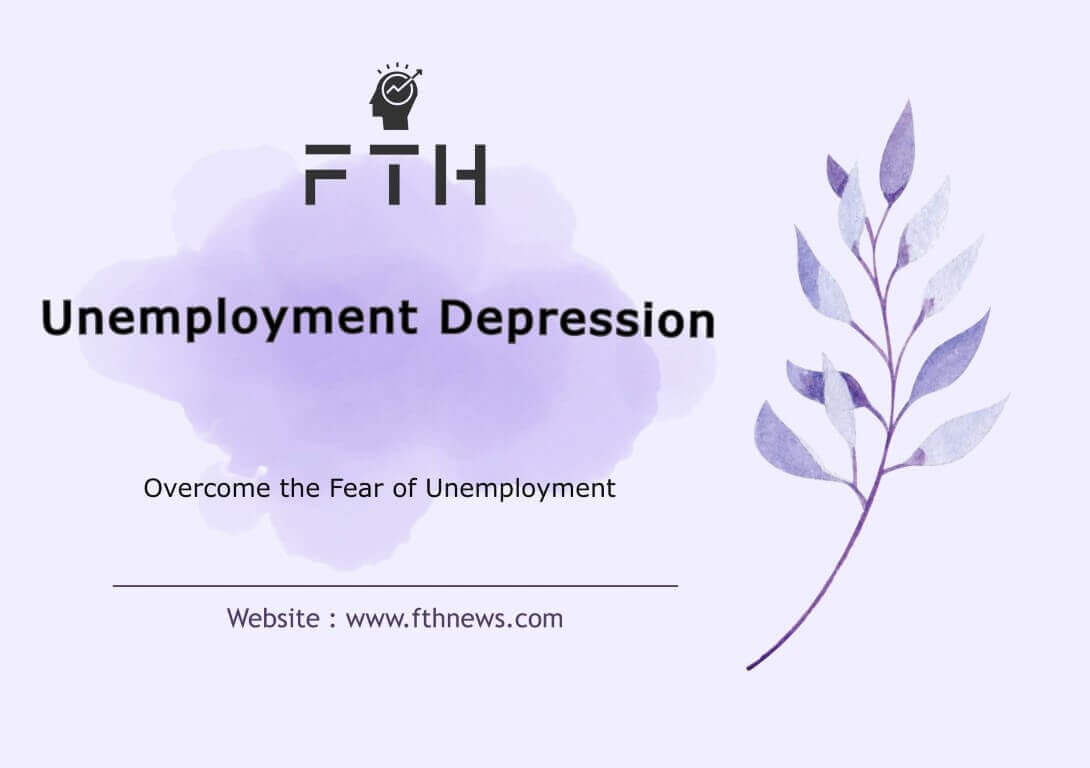
The fear of unemployment is a common experience that can significantly impact both your mental well-being and your productivity in the workplace. This fear, if left unchecked, can evolve into unemployment depression, leading to a cycle of negative emotions and decreased self-worth. In this article, we’ll delve into the intricacies of the fear of unemployment, its relationship with depression, and provide actionable strategies to overcome it. Let’s dive in.
Understanding Unemployment Depression:
Unemployment depression extends far beyond mere sadness resulting from job loss. It encompasses a complex array of emotions, including profound feelings of worthlessness, hopelessness, and an overwhelming sense of anxiety regarding the future. The absence of structure and routine that accompanies unemployment can serve as fertile ground for these emotions to take root and intensify, leading to a downward spiral of negativity that permeates every aspect of life.
Moreover, the societal stigma associated with unemployment can further compound these feelings, leaving individuals grappling with a profound sense of isolation and inadequacy. As daily routines dissolve and the once-familiar rhythms of work are replaced by uncertainty, individuals may struggle to find meaning and purpose in their lives, further exacerbating feelings of despair.
Furthermore, the financial strain of unemployment adds an additional layer of stress, as individuals grapple with the prospect of meeting basic needs and providing for themselves and their families. This combination of emotional, social, and economic stressors creates a perfect storm for the development of depression, making it imperative for individuals to seek support and adopt coping strategies to navigate this challenging period.
Effects of Unemployment on Mental Health:
Extensive research has underscored a compelling correlation between unemployment and a myriad of mental health challenges, prominently including depression and anxiety. The multifaceted impact of job loss extends beyond the realm of financial strain, permeating various facets of an individual’s psychological well-being.
The stress induced by financial insecurity, stemming from the sudden loss of a steady income stream, serves as a potent catalyst for the onset of mental health issues. The looming specter of uncertainty regarding one’s financial future can exacerbate feelings of anxiety and contribute to a pervasive sense of unease.
Furthermore, the loss of identity intricately intertwined with one’s occupation can deal a profound blow to an individual’s self-concept and self-worth. For many, employment serves as more than just a means of financial sustenance—it provides a sense of purpose, belonging, and validation. Consequently, the abrupt severance of this tether can leave individuals grappling with a profound sense of identity crisis, further exacerbating feelings of worthlessness and despair.
Moreover, the social isolation that often accompanies unemployment can serve as a potent breeding ground for feelings of loneliness and alienation. As individuals withdraw from social circles and professional networks, the erosion of social support systems can compound feelings of isolation and exacerbate the sense of detachment from society at large.
Prolonged periods of unemployment can also exact a heavy toll on an individual’s self-esteem and confidence, further compounding the challenges of re-entering the workforce. The relentless barrage of rejections and setbacks can chip away at one’s sense of self-worth, fostering a pervasive sense of inadequacy and impeding efforts to secure gainful employment.
Psychology of Unemployment:
Unemployment and depression form an intricate tapestry woven from a myriad of psychological, sociological, and economic threads. At its core, the psychological impact of unemployment reverberates deeply within the individual psyche, giving rise to a constellation of emotions and cognitive distortions that shape one’s lived experience.
From a psychological standpoint, unemployment engenders a profound sense of inadequacy and self-doubt, as individuals grapple with the perceived failure inherent in job loss. Stripped of the familiar routines and roles that once provided structure and purpose, individuals may find themselves adrift in a sea of uncertainty, navigating uncharted waters without a compass to guide them.
Moreover, the social isolation that often accompanies unemployment serves to exacerbate feelings of loneliness and alienation, further exacerbating the psychological toll. Bereft of the camaraderie and social connections afforded by the workplace, individuals may find themselves increasingly estranged from the fabric of society, grappling with a profound sense of disconnection and detachment.
Sociologically, unemployment can expose individuals to a barrage of societal pressures and stigmas, compounding their distress and exacerbating feelings of shame and inadequacy. In a culture that often equates worth with productivity, the unemployed may find themselves marginalized and ostracized, relegated to the fringes of society by the weight of societal expectations and judgments.
Economically, the fear of unemployment can act as a formidable barrier to personal development and career advancement, hindering individuals’ ability to pursue their aspirations and fulfill their potential. Faced with the specter of job loss, individuals may adopt a defensive stance, retreating into a state of stasis and stagnation that precludes growth and innovation.
In essence, the psychology of unemployment is a complex interplay of individual, social, and economic factors that shape individuals’ experiences and perceptions of job loss.
Strategies to Overcome the Fear and Depression of Unemployment:
Prioritize Personal Development:
Investing in continuous learning and skill development is paramount to enhancing your employability and resilience in the face of unemployment. Stay abreast of industry trends, seek out opportunities for professional growth, and acquire certifications or credentials that bolster your skillset. By actively investing in your personal development, you not only enhance your marketability but also cultivate a sense of empowerment and agency over your career trajectory.
Cultivate a Positive Mindset:
Challenge negative thoughts and cultivate a positive mindset that enables you to navigate the challenges of unemployment with grace and fortitude. Focus on your strengths, past successes, and inherent resilience to counteract feelings of despair and hopelessness. By reframing setbacks as opportunities for growth and learning, you can cultivate a sense of optimism and resilience that bolsters your mental well-being in the face of adversity.
Financial Planning:
Create a comprehensive budget and establish an emergency fund to mitigate the financial insecurity inherent in unemployment. By proactively planning for the possibility of job loss, you can alleviate fears and uncertainties surrounding your financial future. Prioritize essential expenses, explore avenues for reducing discretionary spending, and consider alternative sources of income to bolster your financial resilience during periods of unemployment.
Embrace New Opportunities:
View unemployment as an opportunity for personal and professional growth, rather than a setback or failure. Explore new career paths, entrepreneurial ventures, or educational opportunities that align with your passions and aspirations. Embrace uncertainty as a catalyst for exploration and self-discovery, harnessing your creativity and resourcefulness to adapt to changing circumstances and forge a path forward that aligns with your values and aspirations.
Maintain Self-Worth:
Cultivate a sense of self-worth and intrinsic value that transcends your employment status. Remind yourself of your inherent worth as a human being, independent of external accolades or achievements. Engage in self-care practices that nurture your physical, emotional, and spiritual well-being, and seek support from friends, family, or mental health professionals to bolster your self-esteem and resilience during periods of unemployment.
Maintain a Routine:
Establishing a daily routine can serve as a lifeline during periods of unemployment, providing structure, stability, and a sense of purpose to your days. Set aside specific blocks of time for activities such as job hunting, networking, pursuing hobbies, and engaging in self-care practices. By delineating your day into manageable segments, you can maintain a sense of productivity and accomplishment, even in the absence of traditional employment.
Stay Active:
Physical activity is a powerful antidote to the lethargy and malaise often associated with unemployment depression. Regular exercise has been shown to improve mood, reduce stress levels, and alleviate symptoms of depression and anxiety. Whether it’s going for a brisk walk, practicing yoga, cycling, swimming, or hitting the gym, finding ways to incorporate physical activity into your daily routine can have profound benefits for your mental and emotional well-being.
Seek Professional Help:
If feelings of fear or depression persist despite your best efforts, don’t hesitate to seek professional support. Online psychologists and counselors can provide valuable guidance, support, and therapeutic interventions to help you navigate the challenges of unemployment and reclaim your mental well-being. Remember, reaching out for help is a sign of strength, not weakness, and seeking support is a proactive step towards healing and recovery.
Symptoms Unemployment Depression
Unemployment depression can manifest in a variety of symptoms, both physical and emotional, which can significantly impact an individual’s daily functioning and overall quality of life. Some common symptoms of unemployment depression include:
Persistent feelings of sadness or hopelessness:
Individuals experiencing unemployment depression often struggle with pervasive feelings of sadness, despair, or a sense of emptiness that persists over time.
Loss of interest or pleasure in activities:
Engaging in activities that were once enjoyable or fulfilling may no longer bring the same sense of pleasure or satisfaction, leading to a loss of interest and motivation.
Changes in appetite or weight:
Unemployment depression can disrupt eating patterns, leading to significant changes in appetite, which may result in weight loss or gain.
Sleep disturbances:
Difficulty falling asleep, staying asleep, or experiencing restless sleep patterns are common symptoms of depression associated with unemployment.
Fatigue or low energy:
Individuals may feel constantly tired, lethargic, or lacking in energy, making it difficult to engage in daily activities or maintain a regular routine.
Difficulty concentrating or making decisions:
Unemployment depression can impair cognitive function, leading to difficulties in concentration, memory, and decision-making.
Feelings of worthlessness or guilt:
Individuals may experience intense feelings of self-doubt, inadequacy, or guilt, particularly in relation to their unemployment status.
Increased irritability or agitation:
Unemployment depression can manifest as heightened irritability, frustration, or agitation, leading to conflicts with others or difficulty managing emotions.
Physical symptoms:
In addition to emotional symptoms, individuals may experience physical symptoms such as headaches, stomachaches, or muscle tension.
Social withdrawal or isolation: Unemployment depression can lead to social withdrawal or isolation, as individuals may feel ashamed, embarrassed, or reluctant to interact with others due to their unemployment status.
It’s important to note that everyone experiences depression differently, and individuals may exhibit a combination of these symptoms to varying degrees. If you or someone you know is experiencing symptoms of unemployment depression, it’s essential to seek support from a mental health professional or counselor who can provide guidance, support, and appropriate treatment options. With the right support and interventions, individuals can learn to manage their symptoms and regain a sense of well-being and resilience during periods of unemployment.
Is Unemployment a Cause of Depression?
unemployment can be a significant contributing factor to the development of depression in individuals. The loss of a job can trigger a cascade of negative emotions and stressors that can exacerbate existing mental health issues or lead to the onset of depression. Several factors associated with unemployment can contribute to the development of depression, including:
Financial strain:
The loss of income and financial instability resulting from unemployment can create significant stress and anxiety, particularly if individuals struggle to meet their basic needs or maintain their standard of living.
Loss of identity and purpose:
For many people, their job plays a central role in their sense of identity, purpose, and self-worth. The sudden loss of employment can leave individuals feeling adrift, questioning their value, and struggling to find meaning in their lives.
Social isolation:
Unemployment can lead to social withdrawal or isolation, as individuals may feel embarrassed or ashamed of their unemployed status. Social support networks that were once provided through work may diminish, leading to feelings of loneliness and alienation.
Reduced self-esteem:
Unemployment can erode self-esteem and self-confidence, particularly if individuals experience prolonged periods of job searching or face repeated rejections. This can contribute to feelings of inadequacy, worthlessness, and low self-worth.
Loss of routine and structure:
Work provides a sense of structure and routine to daily life, which can be disrupted by unemployment. The lack of purposeful activity and structure can lead to feelings of aimlessness, boredom, and a loss of motivation.
Uncertainty about the future:
Unemployment often brings with it uncertainty about what the future holds, including concerns about finding another job, financial stability, and career prospects. This uncertainty can fuel anxiety and exacerbate feelings of hopelessness and despair.
While not everyone who experiences unemployment will develop depression, the stressors and challenges associated with job loss can increase the risk for depression in susceptible individuals. It’s essential for individuals experiencing unemployment-related stress or depression to seek support from mental health professionals, friends, and family members, and to explore coping strategies and treatment options to manage their symptoms and improve their overall well-being.
Percentage of People with Depression who are Unemployed
The relationship between depression and unemployment is complex and multifaceted. While unemployment can contribute to the development or exacerbation of depression, not all individuals with depression are unemployed, and not all unemployed individuals experience depression. Additionally, the prevalence of depression among unemployed individuals can vary depending on various factors such as socioeconomic status, access to mental health care, and individual coping mechanisms.
According to research studies and surveys, there is evidence to suggest that the prevalence of depression is higher among unemployed individuals compared to those who are employed. However, the exact percentage varies depending on the population studied and the methodology used to assess depression.
For example, a study published in the American Journal of Epidemiology found that unemployed individuals had a higher prevalence of depression compared to those who were employed, with rates ranging from approximately 11% to 23% depending on factors such as gender and age.
Another study conducted by the National Institute of Mental Health found that individuals who experienced job loss or unemployment had an increased risk of developing depression, particularly if they faced prolonged periods of unemployment or financial instability.
Overall, while there is evidence to suggest a correlation between unemployment and depression, it’s important to recognize that depression is a complex and multifaceted condition influenced by a variety of factors beyond employment status. Additionally, access to mental health care and support can play a significant role in the prevalence and management of depression among unemployed individuals.
“I’m 32 Years Old, Jobless, and Not Depressed: Why?”
It’s a question that may intrigue many: How does someone navigate unemployment without succumbing to the throes of depression? Despite societal expectations and the challenges of joblessness, some individuals manage to maintain their mental well-being remarkably well. If you find yourself in this situation, several factors may contribute to your resilience and lack of depression:
Strong Support System:
Having a supportive network of friends, family, or other social connections can make a world of difference during periods of unemployment. Their unwavering emotional support and encouragement provide a vital lifeline, buffering the negative effects of stress and adversity on mental health.
Effective Coping Mechanisms:
Effective coping mechanisms are invaluable tools for navigating the challenges of unemployment. Whether it’s maintaining a positive mindset, seeking out meaningful activities, or employing problem-solving skills to address job search obstacles, your ability to cope effectively plays a pivotal role in safeguarding your mental well-being.
Sense of Purpose:
Finding meaning and purpose outside of employment can be profoundly empowering. Engaging in activities such as hobbies, volunteer work, or pursuing personal goals provides a sense of fulfillment and satisfaction, reducing the risk of depression and bolstering resilience.
Access to Resources:
Access to resources such as financial stability, education, or job training programs can enhance your sense of control and empowerment during unemployment. Opportunities for personal and professional growth can bolster self-esteem and resilience, providing a solid foundation for navigating this transitional period.
Individual Differences:
Each person’s experience with unemployment and mental health is unique, shaped by factors such as genetic predisposition, personality traits, past experiences, and coping strategies. It’s possible that you possess inherent resilience factors that protect against depression, contributing to your ability to weather the storm of joblessness.
Psychological Flexibility:
Flexibility in adapting to changing circumstances and maintaining a sense of optimism and hope for the future are hallmarks of resilience in the face of unemployment. Remaining open to new opportunities and challenges can help you navigate this transitional period with grace and resilience.
While these factors may contribute to your resilience, it’s essential to continue prioritizing your well-being and seeking support if needed. Remember, seeking help from mental health professionals or support groups is a sign of strength and can provide valuable assistance during challenging times. Additionally, staying connected with your support network and engaging in self-care activities can further support your mental health resilience during unemployment.
Conclusion:
Unemployment depression is a significant challenge that many individuals face, but it’s important to remember that you’re not alone. By understanding the impact of unemployment on mental health and implementing strategies for coping, it’s possible to reclaim your mental well-being and emerge stronger than ever. Remember to be patient with yourself and take each day as it comes. With perseverance and support, you can overcome unemployment depression and navigate this difficult period with resilience and hope.




